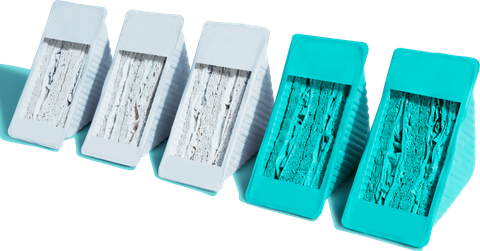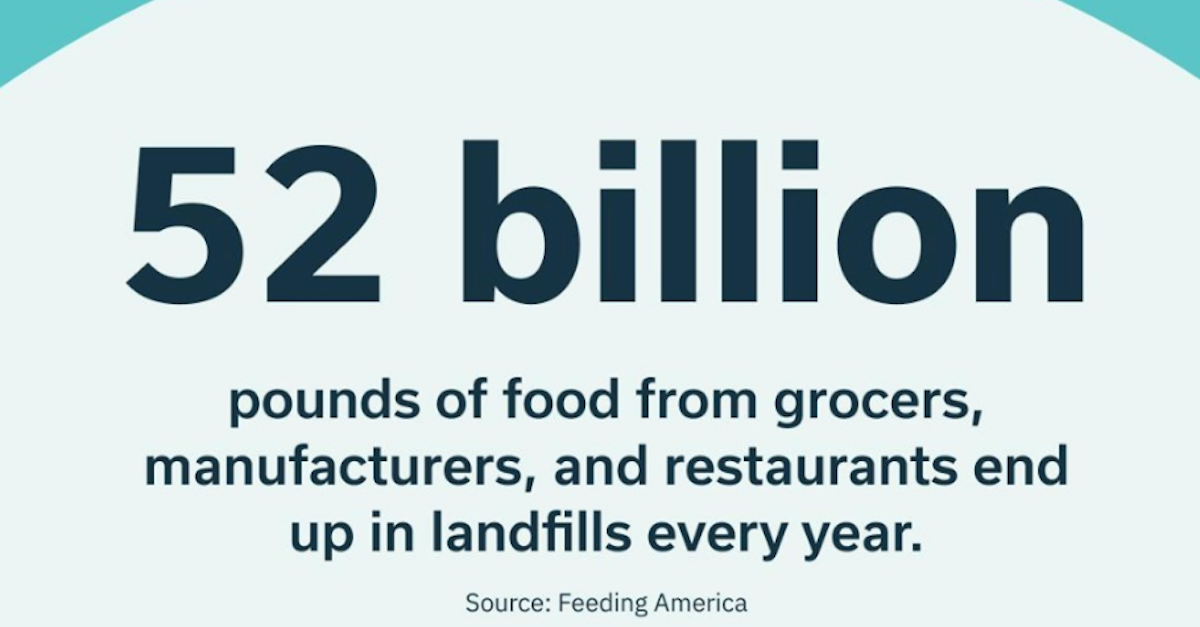How AI Technology Is Tackling Food Waste at Ralphs, Kroger, and More (Exclusive)
Published March 17 2021, 11:37 a.m. ET
Hunger and food insecurity is a life-threatening issue that plagues millions of people nationwide — and the U.S. happens to be among the top 10 food-wasting countries globally. That said, grocers, supermarkets, and food distribution centers are some of the leading contributors to food waste, annually tossing 80 billion pounds of food, worth about $1 trillion. And that’s how the artificial intelligence company Shelf Engine came to be.
When Shelf Engine co-founder Stefan Kalb realized food decay was the downfall of his regional grab-and-go food company, he and software engineer Bede Jordan quit their jobs and developed special AI technology called Shelf Engine to tackle the rampant issue of food waste, which has since been adapted by grocery stores nationwide. And Green Matters was able to speak to Kalb in an exclusive interview to discuss how Shelf Engine works, as well as the mark it's left on the grocery industry.
What is Shelf Engine?
Shelf Engine is a special piece of technology that uses artificial intelligence (AI) to determine what types of foods — and how much of each type — grocers should be ordering at once, Kalb explains, using machine learning, sales data, and more. As a result, grocery stores end up wasting less money and less food, to optimize their orders altogether.
"Shelf Engine’s intelligent forecasting and order automation system uses advanced statistical models, machine learning and neural networks to generate the most accurate orders for grocers, drastically increasing sales and margins, while reducing food waste," Kalb tells us.
"By analyzing historical orders and sales data – alongside real-world considerations such as holidays, school schedules, local events and weather – Shelf Engine creates the optimal order for every single product every day and automates the order submission process," he says.
What is the main issue that's causing retailers to waste so much food?
Shelf Engine basically tackles food waste before it can happen, which is why Kalb says it's so successful.
"The biggest problem is that retailers aren’t accurately calculating waste or shrink from the very start, creating a negative feedback loop that can cripple profit margins. Without using the right formulas, things like breakage, theft and spoilage are left out of the calculation entirely, leading to an inaccurate assessment of shrink," he explains.
"In fact, grocers frequently calculate their shrink rate below 15 percent, but true rates are often much higher, and up to 40 percent in some cases when comparing inventory delivered to inventory sold. Due to this lack of understanding around how to properly track and measure waste, grocers often come up short when trying to tackle the problem of food waste."
Kalb predicts great things for Shelf Engine, and a better future for grocery retailers.
Kalb is optimistic about the future of Shelf Engine, as its demand increases — stores such as Kroger, Ralphs, and Walmart are already using it to reduce their environmental impact.
"As labor costs rise and industry competition intensifies, Shelf Engine’s customer demand is growing exponentially," Kalb says.
"To meet this demand, we’re gearing up to rapidly expand into thousands of new stores over the next 18 months, helping grocers improve profitability, gain market share and offer competitive pricing in order to keep pace with other tech giants and industry innovators," he continues. "We also have plans to grow our team of engineers, data scientists and supply chain automation experts, increasing our overall headcount from 145 employees to anywhere up to 400 by the end of the year."
Kalb also believes its impact on the food industry will be huge.
"The main motivation for adoption of Shelf Engine is the significant impact to the grocer’s bottom line. Grocers using our order automation solutions benefit from an average profit margin increase of more than 50 percent, while reducing food waste by as much as 32 percent. Also, our scan-based trade model allows us to provide grocers with even more value and peace of mind because we guarantee the sale of every item we manage and order," he says.
"By maintaining ownership of all unsold products, we virtually erase the grocer’s inventory risk," he continues. "Not to mention, we also free up time and resources spent on forecasting and inventory planning, which enable grocers to focus on improving the customer experience and building customer loyalty."
We hope more grocery stores adopt Shelf Engine into their business models, for the sake of conserving money and food waste. Meanwhile, as a consumer, keep in mind that there are many ways to eliminate food waste at home such as storing food properly, using scraps, and eating leftovers. Apps like Too Good To Go also curb restaurant food waste by allowing customers to extra food products at the end of the day for a lower price, while CSA Shares make sure farmers' produce is eaten.

